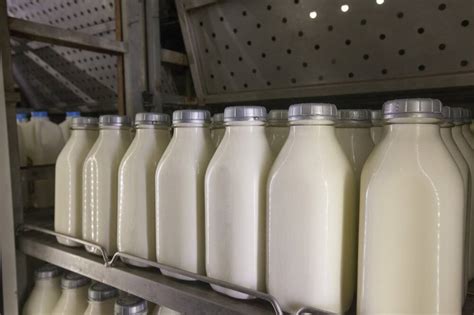In recent years, the raw milk industry, characterized by its offering of unpasteurized milk directly from cows, has seen a significant increase in popularity. Surprisingly, this spike continues despite numerous warnings from health authorities like the Centers for Disease Control and Prevention (CDC) about the potential risks associated with consuming raw milk. Health specialists argue that unpasteurized milk can carry dangerous pathogens, including Salmonella, E. coli, and Listeria, which can lead to severe illness, hospitalization, and even death. Yet, a vocal community of raw milk enthusiasts stands resilient, chanting the superior taste, nutritional benefits, and natural properties of raw milk as their manifesto.
Among those who have long advocated for raw milk are individuals who feel alienated by the shifting political spectrum. As h2odragon poignantly notes, early advocates were once considered progressive for their naturalist and alternative health views. However, as mainstream acceptance of raw milk has dwindled and politicized, these individuals now find their stance uncomfortably aligned with more conservative, anti-establishment groups. Applying modern social psychology, this rebranding phenomenon underscores a growing distrust in governmental institutions—a theme repeatedly echoed by users like lettergram, who states, ‘None of us believe anything the CDC says.’ This erosion of public trust in health authorities manifests in various other realms of public health, such as attitudes towards vaccines and pandemic guidelines.
A significant argument presented by raw milk proponents is the enhancement of flavor and natural health benefits possibly stripped away by pasteurization. Commenters such as lettergram and cafemachiavelli extoll the superior taste profile and the presence of beneficial nutrients that allegedly make raw milk a favorable choice for lactose intolerant individuals. This claim, however, remains contentious. Critics argue that the scientific evidence refuting these benefits is robust. As jszymborski highlights, controlled scientific studies often depict a higher likelihood of foodborne illnesses with raw milk consumption, negating the ‘increased lactase’ argument oft-repeated by raw milk supporters. Additionally, claims of health benefits frequently lack rigorous scientific backing.
Public health advocates and agencies consistently emphasize that raw milk’s risks aren’t limited to the consumers alone. Tombert, for instance, repeatedly raises the concern about contracting tuberculosis from raw milk, which poses a broader public health hazard. Bovine Tuberculosis (TB) is an infectious bacterial disease that can spread from cattle to humans through infected milk. This interconnectedness means that the effects of one person’s decision to consume raw milk can ripple outwards, affecting others in a community. This aspect is the crux of the argument for regulatory oversight, where authorities aim to mitigate broader societal risks. Regulatory measures, therefore, are not merely precautionary but essential to containing potential outbreaks.
Ultimately, this debate over raw milk is emblematic of broader societal tensions concerning individual freedom versus collective safety. Lamcomplications jumpstart an impassioned dialogue on this topic by asserting that regulations should be science-driven and reflective of proven necessity rather than reactionary measures. However, several users quickly point out that individual risk assessments and distrust in scientific institutions play a substantial role in people’s choices. As this debate continues, it underlines a vital question facing public health policy: How do we balance the respect for personal choice with the imperative to safeguard public health? Clearly, while the allure of raw milk’s taste and tradition draws many, the conversation must also account for the empirical risks involved, striving for an ideal where both personal freedom and public well-being are not mutually exclusive.
For those considering raw milk, it’s crucial to be informed and cautious. If you reside in one of the states where raw milk sales are legal, ensure the source adheres to strict hygiene and testing protocols. Even more, consider the broader implications of your dietary choices. While the allure of raw milk’s promised benefits is strong, it’s equally important to weigh this against the potential for serious health risks, not only to oneself but to the community at large. Educated decisions, backed by both empirical evidence and a consideration for public health, ultimately shape a healthier, more informed society.


Leave a Reply